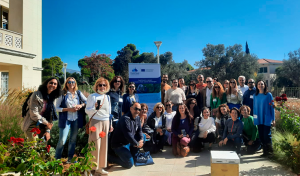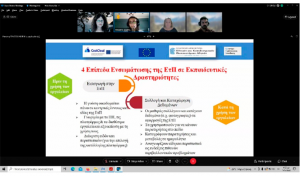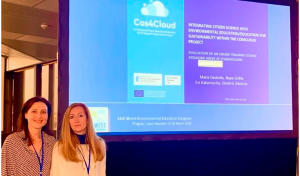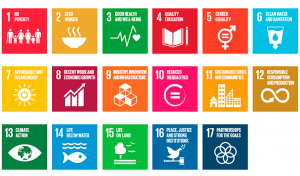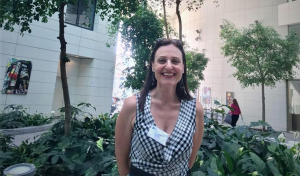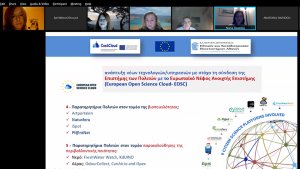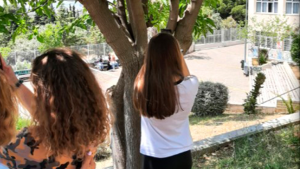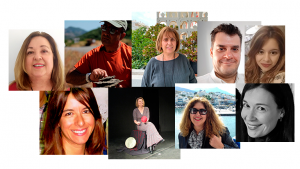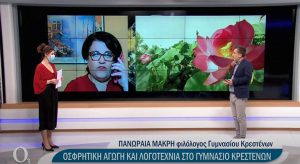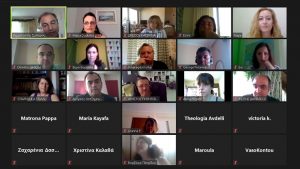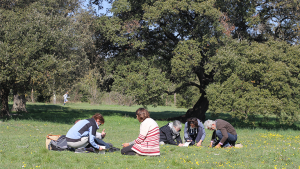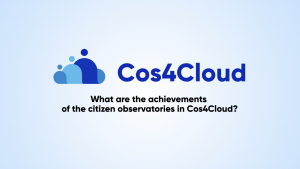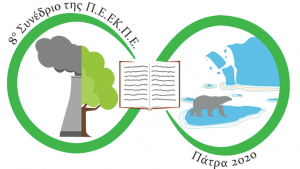Cos4Cloud has worked on integrating citizen science into the curricula of environmental subjects in Greek schools and creating networks of teachers to promote them. To do so, they have organised training events, an online course for school teachers and educational stakeholders and implemented case studies to incorporate citizen science into their teaching practice. The Environmental Education Lab at the National and Kapodistrian University of Athens (NKUA) has been the leader of these actions. In particular, NKUA’s work on education has been focused on:
- Promoting and testing the project’s goals and technologies in educational communities
- Supporting the integration of citizen science and the project’s technologies into formal education practices
- Exploring the learning potential and pedagogical impact of these synergies
- Ensuring the sustainability of these actions and building up new prospects for the future
Educational case studies:
The NKUA team coordinated and supported the implementation of 26 case studies of environmental education projects and activities in Greek primary and secondary schools, which were based on the use of three Cos4Cloud citizen observatories (Pl@ntNet, OdourCollect and Natusfera). The main objective for carrying out these case studies was to integrate citizen science and Cos4Cloud citizen observatories into school practices. The implementation of these projects and activities was based on the six educational scenarios developed through educational co-design by the participants of the six-month online training course as well as on adaptions or revisions of these scenarios.
Attendees
Attendees
Attendees
Educational training materials:
In the framework of the 6-month and 100-hour online training course, the NKUA team developed training materials for the four modules designed to raise awareness, information and capacity building for the participating teachers in order to integrate citizen science and the citizen observatories’ platforms and apps in their teaching practice in environmental education.
Moreover, six educational scenarios were developed in module 5 as the co-design products of participating teachers based on the instructions and templates provided by the NKUA team. The collection of these materials produced, the four reference texts and the six scenarios were adapted and updated to form the content of an open-access digital publication, which is published by the NKUA Press and will be released publicly and become freely available to all interested parties.
Views
Teacher trainings & dissemination events
The NKUA team organized on its own initiative and pedagogical responsibility or participated as co-organizer or guest speaker in several teacher training & dissemination events. The aim was to introduce as many members of the educational community in Greece as possible to the aims, work, technologies and services of the Cos4Cloud project and to empower teachers to transfer them into their established educational practices. A concomitant purpose was to disseminate and communicate the project’s products and the supporting structures that NKUA created for teachers in order to launch and enhance the operation of a national educational network.
Attendees
Attendees
Attendees
Attendees
Teacher workshops for testing the project’s technologies
The NKUA team organised one onsite and two online teacher workshops for testing the project’s technologies. All three events aimed to inform and train the participating active and trainee (postgraduate students) teachers on specific new services of the Cos4Cloud project (namely, MECODA and Pl@ntNet-API) and to test them. As a follow-up, participants would evaluate the use and usefulness of Cos4Cloud’s services for educational practice.
Onsite & online
Attendees
Services tested
- MECODA
- Pl@ntNet-API
New educational network on environmental education and citizen science
A key ambition of the NKUA team was to establish a national educational network through which the objectives, technologies, and services of the Cos4Cloud project could be advanced. This initiative was undertaken through several coordinated actions, ranging from training and dissemination events to developing a website. The aim of creating a national training network has been to ensure the sustainability of all NKUA endeavours and achievements long after the project’s lifetime and to forge new creative synergies and prospects for the future. Members of the Network can become teachers, school education officers, trainers, university students, scientists, NGO professionals, local government educational officials, public authorities educational officials, and citizens.



